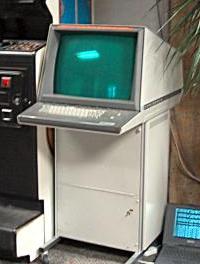关于所提出的观点的意义和影响,可以得出三个主要结论:
首先,任何提高社会问题解决者知识力量有效利用的可能性都值得我们予以最认真的考虑。这是因为人类解决问题的能力可能代表了一个社会所拥有的最重要的资源。其他最重要的竞争者都严重依赖于这种资源的开发和使用。任何发展艺术或科学的可能性,只要能直接且显著地与该资源的持续发展相结合,都应该得到双重的认真考虑。
第二,所提出的想法要从上述两种意义上考虑:直接发展意义和“发展的艺术”意义。可以肯定的是,这种可能性有长期的影响,但它们的追求和最初的回报正等待着我们。根据我们的观点,我们不必等到我们了解了人类的心理过程是如何工作的,我们不必等到学会如何让计算机变得更智能、更大或更快,我们就可以开始在我们现在所知道和拥有的基础上开发功能强大、经济上可行的增强系统。对进一步基础知识和改进机器的追求将持续到无限的未来,并希望融入“艺术”及其改进的增强系统——但是现在开始行动不仅会为这些追求提供方向和刺激,而且会提高我们解决问题的效率,从而实现这些追求。
第三,越来越清楚的是,现在就应该采取行动ーー越快越好ーー在一些研究机构采取行动,而且是大规模的行动。我们提出了一个概念框架和一项行动计划,我们建议将这些框架和计划作为行动的基础加以认真考虑。 如果考虑到这些框架和计划但发现它们不可接受,那么至少应继续认真努力,制定一个更可接受的概念框架,在此框架内看待总体方法,制定一个更可接受的行动计划,或两者兼而有之。
这是对研究人员以及那些最终激励他们、资助他们或指导他们的人来说,是一个公开的呼吁:把严肃的注意力转向发展一门能够在总体意义上解决提高智力效率问题的动态学科的可能性。这一学科的目标应该是产生一个持续的改进循环——对问题认识的提高,改进开发新的增强系统的手段,以及改进的增强系统,可以服务于世界上的问题解决者,特别是本学科的工作者。毕竟,我们为旨在理解和利用核电的学科花费了大量的资金。为什么不考虑发展一门旨在理解和驾驭 "神经力量 "的学科呢?从长远来看,人类智力的力量确实是两者中更重要的。


